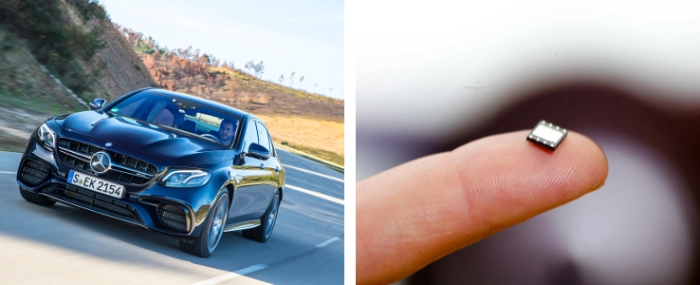
© infineon technologies / daimler ag
Components |
Daimler builds on eSIMs from Infineon
It can save lives, which is why the automatic emergency call feature – termed eCall – will be mandatory for all new car and light commercial vehicle models in the European Union from 31 March 2018. It will therefore be integrated in future in an estimated 20 million new vehicles annually.
The aim of the eCall system is to shorten the time between an accident and the arrival of the emergency services by up to 50 percent throughout Europe, and reduce the number of fatalities on the road by around 10 percent. The automatic eCall can also prevent serious accidents from going unnoticed. In the event of an accident, eCall is used to independently send an emergency call to the emergency call center via the mobile network. Details such as the location, the precise time of the accident, the number of passengers and the type of fuel are transmitted.
Car manufacturers like Daimler already use eSIM security controllers from Infineon for the emergency call feature. The Mercedes-Benz system, for example, not only offers the emergency call functionality required by law, but also services that go much further. These include accident management, breakdown and maintenance management, and remote vehicle diagnostics. The voice and data connection in these telematics services is controlled by a device in the vehicle usually known as the telematics control unit or connectivity module.
The latest generation of connectivity modules from Mercedes-Benz is based on a telephone module that can log on to 2G, 3G and 4G mobile networks. The vehicle establishes a mobile connection via the network and accesses data (such as traffic data or infotainment services) from the Internet. A SIM card would normally be required to identify the vehicle in the mobile network. This is now done by a firmly built in eSIM chip from Infineon. The eSIM works much like a SIM card in mobile phones, but is much smaller and more robust.
The German chip manufacturer doubled its revenue from eSIMs in the 2017 fiscal year. A further increase in demand for eSIMs from Infineon is expected this fiscal year.
